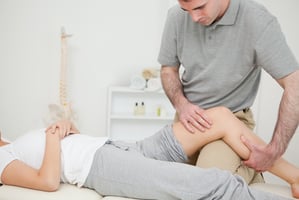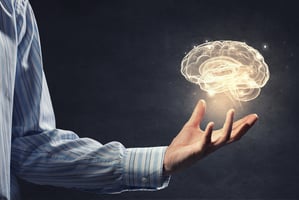One Effect of this Huge and Life-changing Event – Weak Muscles After Stroke…
The problem (and treatment) of reduced balance following stroke
Poor balance... a frightening symptom of stroke
Balance
A stroke can affect your balance for many different reasons; these will be explored one-by-one below.
The human body maintains equilibrium through a complex interaction of systems that convey information to and from the brain.
A stroke can interrupt one or more of these systems meaning their message does not get through.
Please see our website for information on how stroke and neuro therapy may help you:
https://www.strokeandneurotherapy.co.uk/
Weakness and balance
One very common cause of reduced balance following a stroke is muscle weakness.
Our muscles usually work hard to keep us balanced by switching on and off as needed to keep us upright. This includes the muscles in our legs, our core and even in our arms.
When a certain group of muscles become weak due to stroke, usually on one side of the body, this can make it much more difficult to balance.
For example, weak muscles in your leg may mean you aren’t able to position that leg quickly and easily enough to remain stable on the ground.
Or, you may have a very weak and heavy arm. A weak arm may mean you are unable to move that arm to hold onto a handrail or support, or simply to move it out to the side to keep balanced. In addition to these problems, your arm may be so weak and heavy that it pulls your weight to one side making you less stable.
Reduced Sensation and balance
Another common cause of reduced balance following stroke is reduced or altered sensation.
In a similar way to using our muscle strength, we normally use the sensations in our skin, muscles and joints to alert us to where we are in relation to our environment. For example, our sensory receptors on the bottom of our foot tell us when our foot is firmly on the ground. And the joint receptors in our knee tell us whether or not our leg is straight without us having to look.
After a stroke, this sensory information can be interrupted leading you to ‘feel’ as though your leg and foot is in the right position when it isn’t. Alternatively, you may be fully aware that you cannot correctly feel what your leg and foot are doing or where they are. Either of these situations can feel very scary and understandably lead to anxiety and a fear of falling. This fear can, in turn, actually worsen balance further.
Muscle or joint stiffness and balance
This may be a less obvious, but very important, cause of reduced balance following stroke.
When we balance, our bodies rely on being free to move in a flexible and agile way. In this way, we are able adapt to changes in our environment, including uneven ground, or sudden perturbations due to another person bumping into us or due to the train we are standing on slowing down.
Following stroke, it is very common for muscles and joints to become stiff due to spasticity or disuse and as a result, you may not be able to move so freely.
For example, a very common area of stiffness is in the calf. This may mean it is more difficult to place your foot flat on the floor meaning you are less stable in the upright position.
Another example if that your arm may also be held in a stiff position, making it more difficult to move freely and balance well.
Vestibular symptoms and balance
A less common, but still significant, cause of reduced balance following a stroke is vestibular symptoms.
The vestibular system is our ‘balance centre’ and is located within the inner ear. The vestibular system sends signals to the brain to tell us how and where our head is moving in space. For example, it tells us whether we are stationary or moving; if we are moving, it tells us whether that is in a forward or backwards direction, side-to-side, up or down or even whether we are spinning.
It is easy to see how your balance can be significantly affected when this signal is interrupted by a stroke. Following stroke, it is common to experience sensations of spinning or movement that are not actually occurring and are mismatched with what your visual information is telling your brain. This can lead to vertigo and falls.
Other causes of reduced balance
As well as the causes of reduced balance outlined above, there are other factors that can contribute to reduced balance following a stroke, including reduced or altered vision or medication side-effects. Furthermore, there are symptoms that can have an indirect impact on balance and make it more likely that you will fall, such as reduced hearing, confusion, reduced attention, difficulty maintaining concentration, neglect/ inattention, other perceptual difficulties, and even poor bladder and bowel control meaning you are more likely to be rushing to the toilet urgently.
Treatment for balance
Fortunately, physiotherapy and occupational therapy can help you to address many of the factors that apply to you. Your therapist will be able to carry out a thorough assessment and establish your specific balance deficits. Once they ascertain which of the many complex interactions are impacting your balance, they can address these with you by individualised exercises, appropriate aids, environmental adjustments, advice, and education.
Please also see the following pages for how stroke and neuro therapy may help you following stroke:
https://www.strokeandneurotherapy.co.uk/
Exercises for balance
These may include targeted muscle stretching or strengthening exercises, sensory re-education exercises or vestibular exercises, as well as more global balance exercises that will target all your balance systems at once yet still in a targeted way depending on your individual goals.
Compensatory strategies for balance
While you are working towards improving your balance, or once you have reached your recovery potential, it might be necessary to use compensatory methods both to keep you safe as well as to allow you to move in a way that will further promote improvement. These compensatory methods can include use of walking aids or splints as well as adaptations to your environment. Equipment such as chair raisers can be particularly beneficial.
Cognition therapy for balance
In a similar way to working on the physical causes of reduced balance, your occupational therapist can work with you to provide exercises and explore compensatory strategies for cognitive deficits that may also be impacting your balance.
You may find more useful information about balance following stroke on the Stroke Association website:
https://www.stroke.org.uk/effects-of-stroke/physical-effects-stroke/balance-problems-after-stroke
Please also see the following pages for how stroke and neuro therapy may help you following stroke:
https://www.strokeandneurotherapy.co.uk/rehabilitation-and-therapy-services





